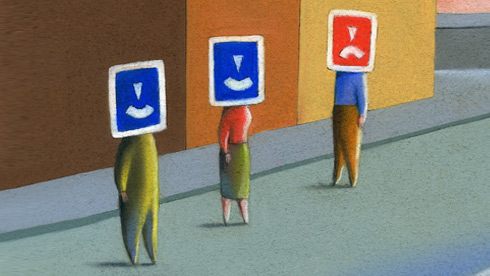Bulgaria is ranked 144th .
One possible explanation is that there are other cultural models better adapted to describing Bulgaria's condition. In the Balkans, and especially in Bulgaria, we are very good at the culture of complaint.
It is difficult to complain in more developed societies. If we complain that we live poorly, that we do not earn enough or that our private life is not as it should be, there is a risk we will not find a job. That is why people develop an optimistic outlook, which can sometimes seem forced.
The second significant factor is that happiness is not a state of being but a process. We are not happy if we are not evolving. It is like riding a bicycle: if the pedals don't turn, you fall over. You have to move forward, to overcome obstacles. Happy societies are those with a goal, a plan.
We have been without direction for some time now. Perhaps this is due to the ageing population. Nonetheless, it is clear that we no longer know where the country is headed.
Welfare states and a sense of belonging
Another factor is the definition of happiness: it is a feeling of belonging. We must feel that we are part of a community; that we are appreciated. This may be why the Scandinavian countries, with their highly-developed welfare states, are ranked at the top of the index. [[The welfare state is a kind of belonging]]. Originating in the 19th century, welfare states make people feel that they have rights, that they are provided for, educated and allotted treatment.
In Bulgaria, the welfare state was quickly put to rest. Not only did we fail to pursue this option, but we lost the little we had gained. Bulgarians feel totally useless.
The type of capitalism that came to dominate in countries such as ours, clearly needs people. It seeks to acquire our lands, our homes, to build something. And we are supposed to seek happiness abroad.
The correlation between wealth and happiness is also important, but even more so, is the perception of the gap between rich and poor. In the Scandinavian countries, robust wealth redistribution reduces social inequalities. In Bulgaria, the gap is among the widest in the world. Only Latvia seems to have outdone us. And the gap is getter even wider. In Bulgaria, we like to compete: the neighbour always has more. This mentality feeds discontent and pushes us to ask such questions as: Am I a success? Should I be doing more?
Bulgarians may be wealthier than citizens of African countries, they are nonetheless unhappy because others are wealthier than they. This inequality undermines our sense of happiness.
Happiness and materialism
Religion can also play a role. Religion suggests that we are in our place, that all is well. But in a strange metamorphosis, religion today has been transformed into a decorative thing that is no longer able to penetrate people's psychological make-up: another hypothesis that may explain our feeling of unhappiness.
The final factor is the link between happiness and non-material values. Materialism requires a hierarchy and inequality. [[It is very easy to end up at the bottom of the materialist hierarchy]]. Values give meaning to our lives, to what we do. The order they provide makes each of us important. When we do something for those around us, we get a sense of accomplishment, of being part of a family. Doing things for those close to us gives us a sense of importance, of worthiness.
Within the government's master plan, however, and within the national economy, we feel insignificant. Nothing has any sense, not even values. We are losing the notion that a simple act can have consequences and can give our lives meaning. We are losing the sense of being part of a larger group. That is why we are relegated to the bottom of the UN list.
We have begun to believe that everything depends on money, that everything is material. Yet the UN report shows a direct link between happiness and nations that know how to protect their traditional values – such as generosity.
Do you like our work?
Help multilingual European journalism to thrive, without ads or paywalls. Your one-off or regular support will keep our newsroom independent. Thank you!












